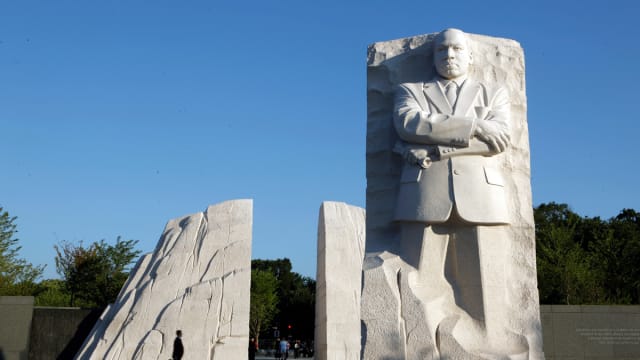
So only “people of color” should be profiting? Stanley Crouch on how a hero has been reduced.
Stanley Crouch's culture pieces have appeared in Harper's, The New York Times, Vogue, Downbeat, The New Yorker, and more. He has served as artistic consultant for jazz programming at Lincoln Center since 1987, and is a founder of Jazz at Lincoln Center. In June 2006 his first major collection of jazz criticism, Considering Genius: Jazz Writings, was published. Next year the first volume of his long-awaited biography of Charlie Parker will appear.

So only “people of color” should be profiting? Stanley Crouch on how a hero has been reduced.

Why did our Spock-like president bow to public lunacy in his interview with Matt Lauer?

Stanley Crouch on the lacy French Open outfit that rocked the tennis world—and the culture of raunch it came out of.

With a trailblazing African-American in the White House, why does the PBS host insist on bringing lunatics together to talk about race?

We don’t talk about the genocide in places like the Congo, writes Stanley Crouch, because we can’t face up who’s really responsible for the rape and slaughter.

The writer, part of the team behind HBO's The Wire, died before the premiere of his ambitious new show. But Stanley Crouch says that in Treme, Mills' legacy of three-dimensional storytelling and startlingly well-conceived characters lives on.

Why did the acclaimed author of the classic Invisible Man never publish another book? Stanley Crouch on the tortured brilliance of Ellison’s unfinished work and how America failed to appreciate him.

A new VH-1 documentary celebrates the landmark television show, but as Stanley Crouch writes, the real power of looking back at Soul Train is seeing what black culture has lost.

On the 70th anniversary of Gone With the Wind, Stanley Crouch revisits the controversial film—and recalls the time his grandmother shouted down Vivien Leigh in the theater.

As the latest production of A Streetcar Named Desire ends its celebrated two-week run at the Brooklyn Academy of Music, Stanley Crouch tells us why Cate Blanchett’s performance has already passed into theater legend.